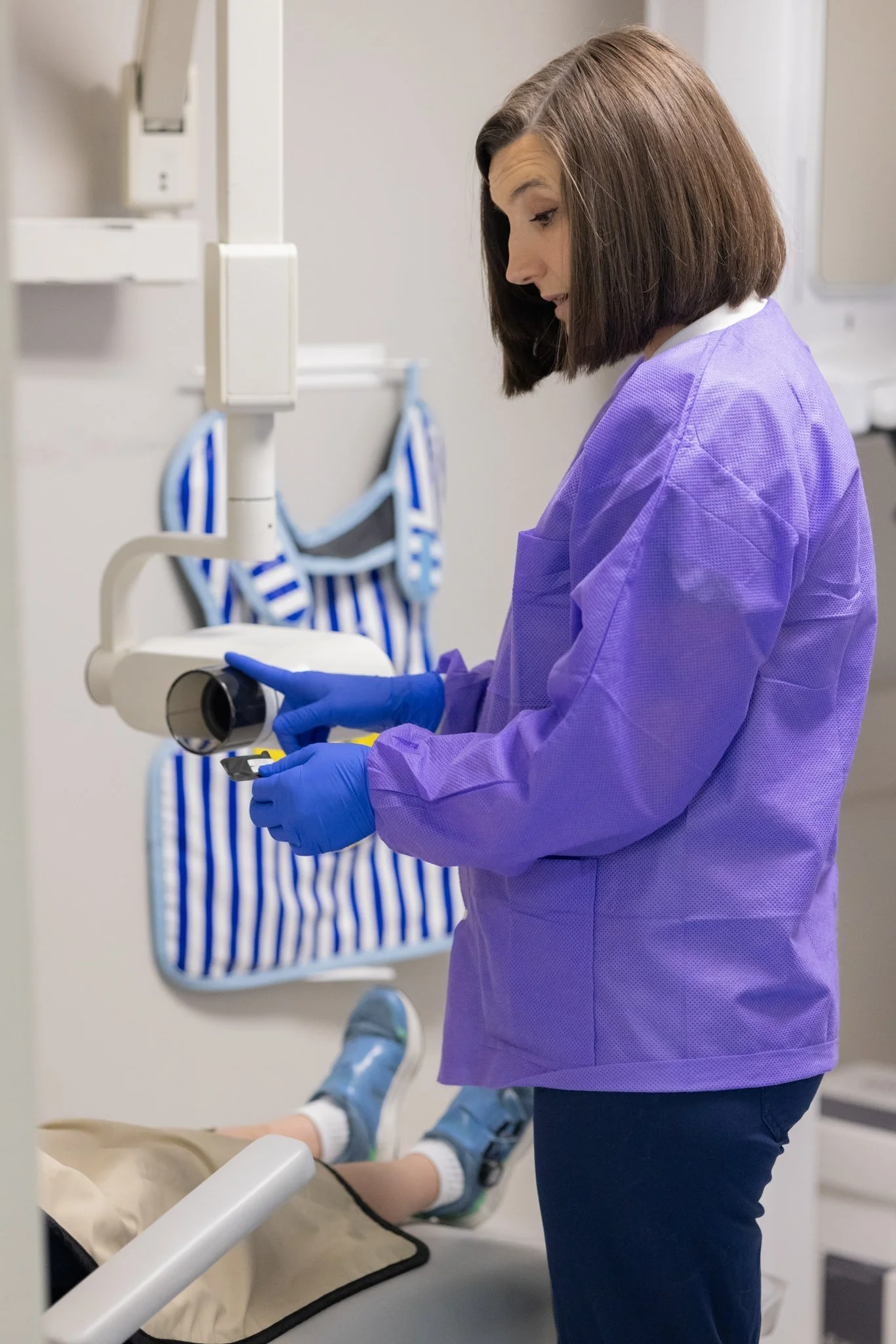Adolescent Dentistry
-
You might not be surprised anymore to see people with pierced tongues, lips or cheeks, but you might be surprised to know just how dangerous these piercings can be.
There are many risks involved with oral piercings, including chipped or cracked teeth, blood clots, blood poisoning, heart infections, brain abscess, nerve disorders (trigeminal neuralgia), receding gums or scar tissue. Your mouth contains millions of bacteria, and infection is a common complication of oral piercing. Your tongue could swell large enough to close off your airway!
Common symptoms after piercing include pain, swelling, infection, an increased flow of saliva and injuries to gum tissue. Difficult-to-control bleeding or nerve damage can result if a blood vessel or nerve bundle is in the path of the needle.
So follow the advice of the American Dental Association and give your mouth a break – skip the mouth jewelry!
-
Tobacco in any form can jeopardize your child’s health and cause incurable damage. Teach your child about the dangers of tobacco.
Smokeless tobacco, also called spit, chew or snuff, is often used by teens who believe that it is a safe alternative to smoking cigarettes. This is an unfortunate misconception. Studies show that spit tobacco may be more addictive than smoking cigarettes and may be more difficult to quit. Teens who use it may be interested to know that one can of snuff per day delivers as much nicotine as 60 cigarettes. In as little as three to four months, smokeless tobacco use can cause periodontal disease and produce pre-cancerous lesions called leukoplakias.
If your child is a tobacco user you should watch for the following that could be early signs of oral cancer:
A sore that won’t heal.
White or red leathery patches on the lips, and on or under the tongue.
Pain, tenderness or numbness anywhere in the mouth or lips.
Difficulty chewing, swallowing, speaking or moving the jaw or tongue; or a change in the way the teeth fit together.
Because the early signs of oral cancer usually are not painful, people often ignore them. If it’s not caught in the early stages, oral cancer can require extensive, sometimes disfiguring, surgery. Even worse, it can kill.
Help your child avoid tobacco in any form. By doing so, they will avoid bringing cancer-causing chemicals in direct contact with their tongue, gums, and cheek.
-
Vaping
Around 8% of people living in the U.S. use e-cigarettes, one major poll shows. Although the Food and Drug Administration (FDA) now has the authority to regulate all forms of nicotine, including the nicotine cartridges used in e-cigarettes, we still don’t have all the facts about vaping and dental health.
Could Vaping be Dangerous for Your Mouth?
E-cigarettes (also called vape pens) use a battery to heat up the liquid inside a special cartridge, creating a kind of aerosol “smoke” that users inhale. But as the American Lung Association warns, this isn’t just harmless water vapor.
The liquid (or e-juice) inside vaping cartridges usually contains nicotine made from tobacco, along with flavorings and other chemicals. Even cartridges that claim to be nicotine-free have been shown to contain some nicotine.
When the liquid in the cartridge heats up, more chemical compounds are formed. Researchers have found harmful substances in vape cartridges, including carcinogens (chemicals known to cause cancer) and heavy metals such as nickel, tin and lead.
The lithium-ion batteries in vape pens provide enough current to heat the liquid inside vape cartridges to 400° F in seconds, a CDC report shows. News reports have documented cases where people have been hurt when e-cigarettes have exploded or caused fires inside their mouths.
The American Dental Association’s Stance on Tobacco and Nicotine Products
Decades of research show that smoking and smokeless tobacco products are harmful to dental health. This is true whether people smoke cigarettes, cigars, pipes, hookahs (water pipes) or use chewing tobacco and other smokeless tobacco products. All of these products contain nicotine, which is highly addictive and known to affect brain development in children, teens and young adults.
The American Dental Association (ADA) has adopted policies relating to products that contain nicotine, including e-cigarettes. Our policies call for dentists to be fully aware of the health risks that come with tobacco use, including higher rates of tooth decay, gum disease, bone damage, tooth loss and more. Dentists are encouraged to screen patients for nicotine use — including tobacco and non-tobacco products — and provide counseling to help people quit.
The ADA is also concerned that marketing some nicotine delivery methods (such as vaping) as if they were less harmful than others is not a viable strategy for preventing deaths and disease caused by tobacco use.

